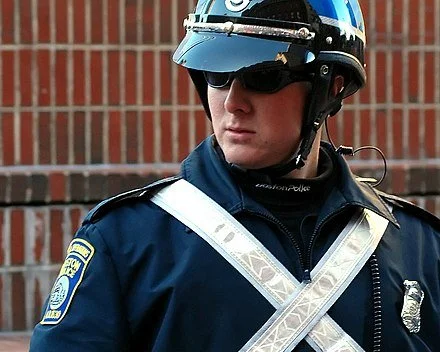A Boston Police Dept. special operations officer
Adapted from Robert Whitcomb’s “Digital Diary,’’ in GoLocal24.com
Boston is one of those few big American cities that hasn’t had a surging homicide rate in the last few years. (The national crime rate, including for murder, remains lower than it was in the 1970’s to 1990’s.)
In 2020, for example, Boston had 56 murders, close to its five-year average of 51, and last year that number fell to 40. The city has in recent years been ranked at about 45th among American cities in murder rates. Consider that Baltimore, which has almost 100,000 fewer people than Boston, had 337 murders last year!
Boston’s relatively good record can be attributed to such things as a neighborhood-focused approach to policing that makes heavy use of local nonprofit and other organizations, including religious organizations. But it’s also that Boston lacks the entrenched culture of violence of many cities and that its residents tend to have fewer guns than residents of most big American cities. Indeed, the gun culture has always been weaker in New England than in most of America, with the notable exception of some thinly populated rural parts, mostly in northern New England. And perhaps the much-noticed proliferation of surveillance cameras in parts of Boston may play some small role in discouraging crime.
And, for that matter, New England, of which Boston is the regional capital, has less crime in general than other regions, in part because it has a more stable population and stronger civic culture, with less of the anomie found in the Sun Belt.
Those who misinterpret (ignoring the line about a “well-regulated militia’’) the Second Amendment like to say “guns don’t kill people, people kill people,’’ so the more guns out there the better!
How disingenuous! It’s “people with guns who kill people,’’ and much faster and more efficiently than with other weapons. Details, details!
In any event, Boston has some lessons for other American cities.











